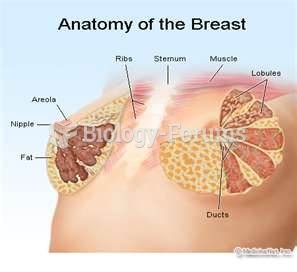|
|
|
Bacteria have been found alive in a lake buried one half mile under ice in Antarctica.
Illicit drug use costs the United States approximately $181 billion every year.
A cataract is a clouding of the eyes' natural lens. As we age, some clouding of the lens may occur. The first sign of a cataract is usually blurry vision. Although glasses and other visual aids may at first help a person with cataracts, surgery may become inevitable. Cataract surgery is very successful in restoring vision, and it is the most frequently performed surgery in the United States.
Cancer has been around as long as humankind, but only in the second half of the twentieth century did the number of cancer cases explode.
The average office desk has 400 times more bacteria on it than a toilet.







